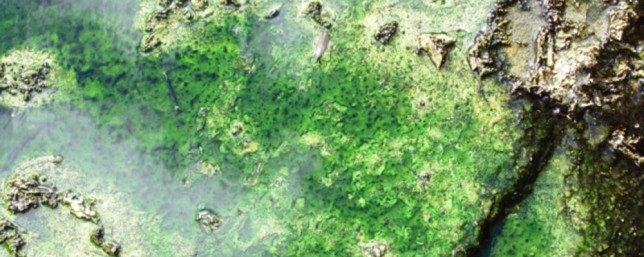About the Program
Minor
The Minor in Geospatial Information Science and Technology (GIST) has been approved by two departments at UC Berkeley. Environmental Science, Policy and Management in the College of Natural Resources and the Department of City and Regional Planning in the College of Environmental Design now offer minors in Geospatial Information Science and Technology which includes courses across campus. These programs serves students in geography and other social sciences, archeology, environmental science, policy and management, city and regional planning, humanities, architecture, landscape architecture and environmental planning, civil and environmental engineering, public policy, and environmental public health. The Minor is open to all majors at UC Berkeley.
Declaring the Minor
For information on declaring the Minor, please contact Eva Wong, advisor, Department of Environmental Science, Policy, and Management.
Minor Requirements
Students who have a strong interest in an area of study outside their major often decide to complete a minor program. These programs have set requirements and are noted officially on the transcript in the memoranda section, but they are not noted on diplomas.
General Guidelines
-
All courses taken to fulfill the minor requirements below must be taken for graded credit.
-
A minimum grade point average (GPA) of 2.0 is required for courses used to fulfill the minor requirements.
-
No more than one upper-division course may be used to simultaneously fulfill requirements for a student's major and minor programs.
Requirements
| Select one of the following: | ||
| Introduction to Geographic Information Systems | ||
| Geographic Information Systems | ||
| Undergraduate Courses: | ||
| Undergraduate Seminar (There may be other 196 coures, but this in the only one approved.) | ||
| Workshop in Designing Virtual Places | ||
CIV ENG 202B | Course Not Available 2 | |
| Introduction to Symbolic Programming | ||
| The Beauty and Joy of Computing | ||
| User Interface Design and Development | ||
| Introduction to City Planning | ||
CY PLAN 204 | Course Not Available 2 | |
| Urban Planning Applications of Geographic Information Systems 2 | ||
| Field Geology and Digital Mapping | ||
| Geomorphology | ||
| Photogrammetry and Remote Sensing | ||
| Introduction to Ecological Data Analysis | ||
| Spatial Data Analysis for Natural Resources 2 | ||
| Geographic Information Systems for Environmental Science and Management 2 | ||
| Advanced Remote Sensing of Natural Resources 2 | ||
| Special Topics in Environmental Science, Policy, and Management 2 | ||
| Physical Landscapes: Process and Form | ||
| Cartographic Representation | ||
| Geographic Information Analysis | ||
| Geographic Information Systems: Applications in Geographical Research 2 | ||
| Introduction to Technology, Society, and Culture | ||
| Sustainable Landscapes and Cities | ||
| Computer Applications in Environmental Design | ||
| Quantitative Methods in Environmental Planning 2 | ||
| Topics in Landscape Architecture and Environmental Planning (There may be other 290 courses, but this is the only one approved) 2 | ||
PB HLTH 272 | Course Not Available 2 | |
| 1 | If both courses listed above are taken, one of them may count as one of the four electives. |
| 2 | Graduate courses require consent of the instructor and completion of prerequisites. |
Faculty
Professors
Kurt Cuffey, Professor. Continuum mechanics, climate, geomorphology, glaciers, glaciology, climate history, stable isotopes, geographical thought.
Research Profile
Paul Groth, Professor. Architecture, vernacular architecture, urban geography, suburban America, cultural landscape studies, housing (US).
Research Profile
Gillian P Hart, Professor.
You-Tien Hsing, Professor. China, geography, political economy of development in East Asia, the process of international economic restructuring, cultural and institutional configuration in the processes of Taiwanese direct investment, growth in Chinese cities, business networks.
Research Profile
Michael Johns, Professor. Latin America, development, geography, culture of cities.
Research Profile
Michael J Watts, Professor. Islam, development, Africa, social movements, political economy, political ecology, geography, South Asia, peasant societies, social and and cultural theory, U.S. agriculture, Marxian political economy.
Research Profile
Associate Professors
A. Roger Byrne, Associate Professor. Historical biogeography, vegetation change, prehistoric agriculture, pollen analysis, history of late-Pleistocene/Holocene environment, fossil pollen.
Research Profile
Jeffrey Q. Chambers, Associate Professor.
John C. Chiang, Associate Professor. Climate change, climate dynamics, ocean-atmosphere interactions, paleoclimate.
Research Profile
David O'Sullivan, Associate Professor.
Robert C. Rhew, PhD, Associate Professor. Geography, terrestrial-atmosphere exchange of trace gases, atmospheric chemistry and composition, halogen biogeochemistry, stratospheric ozone depletion issues, coastal salt marsh, chaparral, desert, tundra, boreal forest, grassland.
Research Profile
Nathan F. Sayre, Associate Professor. Climate change, endangered species, rangelands, political ecology, pastoralism, ranching, environmental history, suburbanization, human-environment interactions, environmental geography, range science and management, Southwestern US, scale, community-based conservation.
Research Profile
Assistant Professors
Jake Kosek, PhD, Assistant Professor.
Adjunct Faculty
Norman L. Miller, Dphil, Adjunct Faculty. Hydroclimate modeling and assimilation and analysis, climate change impacts to sociology-economic and ecological sectors.
Research Profile
David B. Wahl, Adjunct Faculty.
